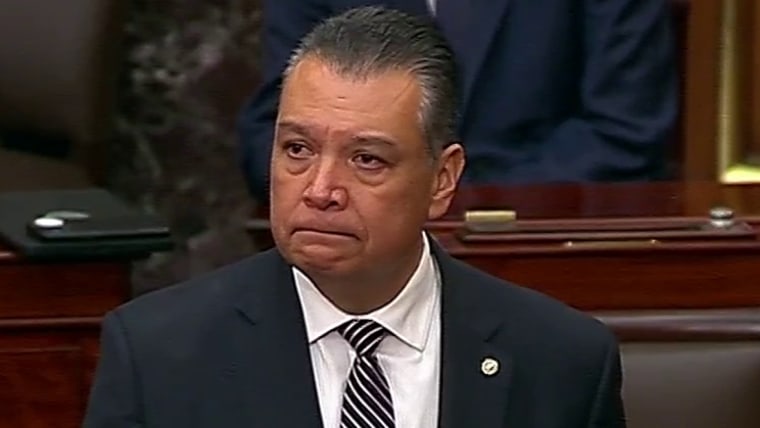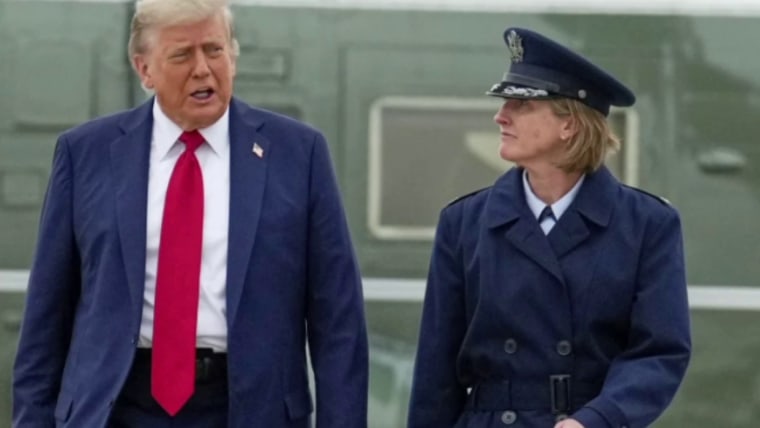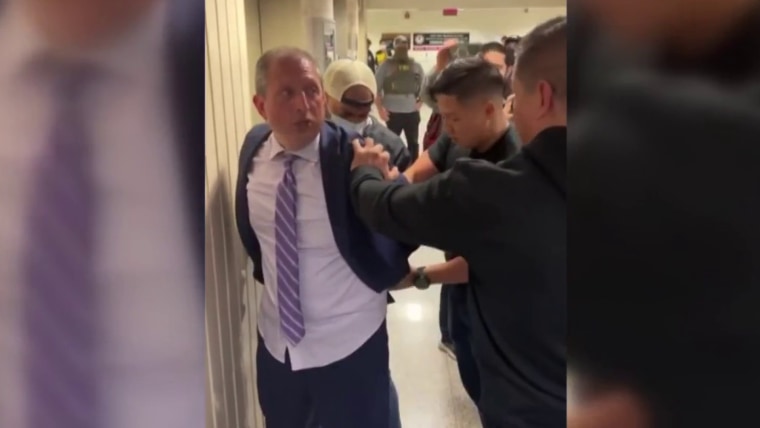Politicians and commentators across the political spectrum have decried what they see as a breakdown of “law and order” in Los Angeles and other U.S. cities, where protests against Immigration and Customs Enforcement have, at times, boiled over into property destruction, looting and clashes with police.
We must take a hard look at how lawlessness by those sworn to uphold the law has helped set the stage for disorder.
I’m a retired police lieutenant who spent over 20 years on the force, and I understand the instinct to denounce unlawful behavior, especially when it puts officers in danger. But if we truly care about upholding “law and order” — and not just using the term for cheap political attacks — we must apply those values consistently and take a hard look at how lawlessness by those sworn to uphold the law has helped set the stage for the disorder now being condemned.
Let’s be clear: Looting, vandalism and violence against police are wrong and can’t be justified. Still, the unrest we’re seeing didn’t appear out of thin air. These protests began as a genuine response to ICE’s increasingly aggressive deportation tactics, which have created a growing perception that law enforcement no longer sees itself as bound by the law.
In a troubling trend away from transparency and toward para-militarization, ICE agents have carried out a string of arrests that more closely resemble kidnappings: plainclothes officers with covered faces refusing to identify themselves, sweeping up individuals who have not committed serious crimes — or any crimes at all. Some of those detained have included legal immigrants, tourists, and even other law enforcement personnel. Officers have used deception and outright lies to target children, mothers, respected community members and others far removed from the category of “dangerous criminals” that ICE once claimed to be pursuing.
Instead of responding to mounting public criticism — including many comparisons to the secret police of authoritarian regimes — ICE has doubled down by promising to target cities in blue states with enhanced deportations. The message is clear: The law doesn’t apply to us, and we don’t answer to you.

That message was made even more stark last week, when ICE officers forcibly removed Sen. Alex Padilla, D-Calif., from a news conference as he attempted to question Homeland Security Secretary Kristi Noem about agency practices. Padilla was thrown to the ground and handcuffed. Some have applauded his treatment, claiming no one is above the law. But that logic is backward: challenging lawlessness the way Padilla did is not a violation of the law. In fact, an elected representative demanding answers from a government official is the essence of public accountability in a democracy.
Tuesday, federal agents detained New York City Comptroller Brad Lander at a federal immigration courthouse in Manhattan. The Department of Homeland Security later said Lander, a candidate in next week's Democratic primary for mayor of New York, was arrested for “assaulting law enforcement and impeding a federal officer.”
This is where our current crisis lies. When those in authority, including law enforcement, are given impunity to act with cruelty or disregard for constitutional norms, it corrodes the moral legitimacy of these institutions as a whole. In the case of recent demonstrations, why should protesters trust or respect police officers who show no respect for them — or for the law itself?
Why should protesters trust or respect police officers who show no respect for them — or for the law itself?
If we want concern for law and order to be taken seriously, then we must at the very least practice what we preach. When law enforcement abandons transparency, accountability and restraint, it fractures the very trust that gives us authority in the first place. Without that trust, we forfeit the moral high ground — and that opens the door to even more disorder, as we’ve seen in recent weeks.
While Los Angeles may be the current flashpoint, this dynamic is nothing new. We’ve seen it repeatedly throughout history, especially in the wake of high-profile incidents of police abuse or government overreach where the public perceives that people in positions of power have skirted accountability.
Unfortunately, recent political rhetoric has only fueled this dangerous trend. In April, President Trump issued an executive order pledging to “unleash” law enforcement, language that signals to officers and the public that professionalism, integrity and community cooperation are now secondary to raw power.

That posture may masquerade as support for law and order, but it does the opposite; it undermines public trust, legitimizes abuse and ultimately erodes public safety. When police are “unleashed” rather than held to constitutional standards, the result is fear, resistance and more chaos in our streets.
As someone who has worn the badge and led officers in high-stakes situations, I believe law enforcement is at a pivotal moment. Over the coming weeks, demonstrations against ICE are likely to continue across the country. How we respond will define the future of American policing. We can continue down a path shaped by intimidation and authoritarian spectacle. Or we can recommit to the principles that make policing legitimate and effective in the eyes of the people we serve. Whichever route we choose, the nation and the world will be watching.
